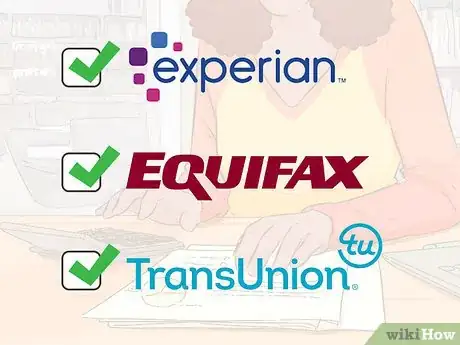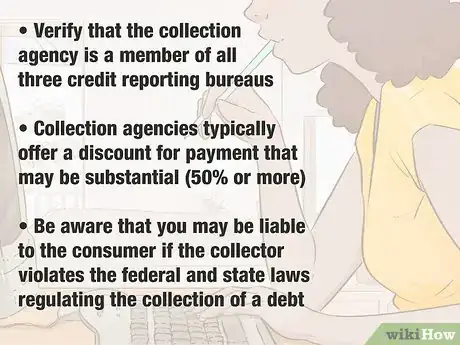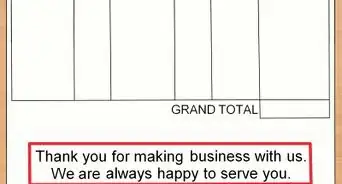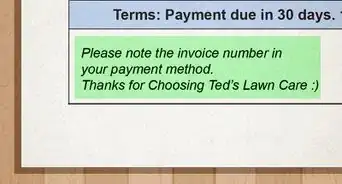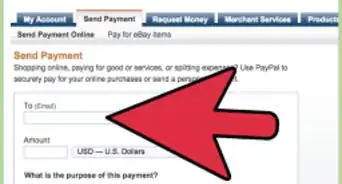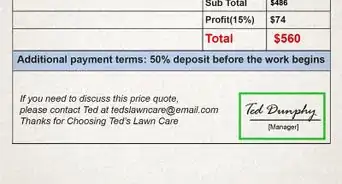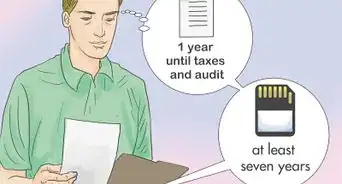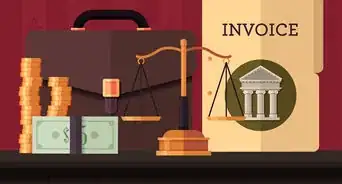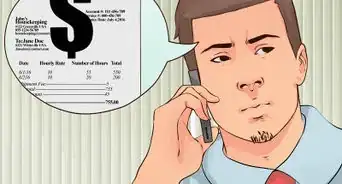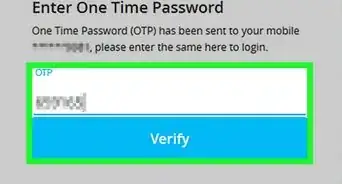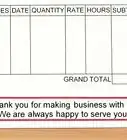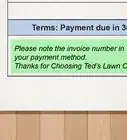This article was co-authored by Michael R. Lewis. Michael R. Lewis is a retired corporate executive, entrepreneur, and investment advisor in Texas. He has over 40 years of experience in business and finance, including as a Vice President for Blue Cross Blue Shield of Texas. He has a BBA in Industrial Management from the University of Texas at Austin.
This article has been viewed 124,019 times.
Credit bureaus are agencies that keep credit reports on file for every consumer with a federally-issued social security number (SSN). A credit report file contains information about an individual's financial debt, including account numbers for current and past debts, loan types and terms and payment history. If an individual defaults on loan payments, the creditor may opt to send a report of the late payment(s) to the credit bureaus so that it will be reflected in the consumer's credit file. If you are a small business with few debtors, you will have to use a middleman and pay a fee to report to the credit bureaus. Otherwise, you may join the credit reporting bureaus and report directly to them.
Steps
Learning About Credit Bureaus
-
1Research the three credit bureau agencies. In the U.S., there are three national credit bureaus, Equifax, Experian, and TransUnion. These bureaus collect, update, and store credit histories on most U.S. consumers. When a consumer applies for a loan to buy a car or house, for example, the bank will contact these credit bureaus to find out your credit history and FICO credit score.[1]
- A credit score ranging from 300 – 850 is assigned to each consumer based on the number of late payments, the amount of outstanding debt, or whether the person ever filed for bankruptcy or defaulted on a loan.
-
2Use credit reporting to collect bad debts. Most people do not want a negative report on their credit history. If you are trying to collect money from someone and they haven't paid, give them a final due date. Then tell them you will be reporting the non-payment to the three credit bureaus if the money is not paid by that date.Advertisement
-
3Negotiate with removal of a bad credit entry. Another tactic to try in collecting payment is to report the bad debt to the credit agencies, and then offer to remove it if the debt is paid within a specific time period. Be sure that the debt is reported to all three bureaus, as an unreported debt will not show up on a bureau's credit report if that credit bureau does not have a record of it.[2]
Hiring a Collection Agency or Credit Reporting Service
-
1Hire a collection agency. This is one of your options if you are not a large lender, but rather a small-volume creditor with only a few unpaid debts from customers. Collection agencies attempt to collect the debt owed to you. If they cannot collect, they report the default account to the three credit bureaus in their name. Therefore, using a collection agency is an indirect way of reporting to the credit bureau agencies.[3]
-
2Choose a collection agency carefully. Do a search for collection agencies in the phonebook or online. Shop around for the best price. Collection agencies will charge you a small fee or a commission on the amount they collect.
- Verify that the collection agency you choose is a member of all three credit reporting bureaus.
- Collection agencies typically offer a discount for payment that may be substantial (50% or more).
- Be aware that you may be liable to the consumer if the collector violates the federal and state laws regulating the collection of a debt.
-
3Hire a credit reporting service company. Credit reporting services will to do the reporting for you. Not only will these companies help you establish accounts with the three credit bureau agencies, if applicable, but they also provide other services as well.[4]
- They provide help with formatting your information properly for submission to the credit bureaus.
- They list your debtor's bad debt on your behalf.
Reporting Directly to Credit Bureaus
-
1Join the credit bureaus. Being a member of all three credit bureaus allows you to report directly to them, without paying a middleman. In order to be accepted as a member of one of the three (or all three) national credit bureau agencies, you must have a certain number of customer payment histories and a specified minimum number of open accounts with debtors. This could be as many as 500. Otherwise, you will have to choose one of the methods listed elsewhere in this article.[5]
-
2Call the credit bureau and ask for their qualification requirements. If you qualify, ask them to send you an application. Submit your application and wait for an approval.
-
3Pay the fees and service charges. You will now be able to submit reports directly to a credit bureau. Keep in mind that the costs you incur through the credit bureaus will amount to less than those charged by collection agencies and credit reporting agencies.
Expert Q&A
-
QuestionDoes the credit bureau legally have to remove a disabled person's debt?
 Michael R. LewisMichael R. Lewis is a retired corporate executive, entrepreneur, and investment advisor in Texas. He has over 40 years of experience in business and finance, including as a Vice President for Blue Cross Blue Shield of Texas. He has a BBA in Industrial Management from the University of Texas at Austin.
Michael R. LewisMichael R. Lewis is a retired corporate executive, entrepreneur, and investment advisor in Texas. He has over 40 years of experience in business and finance, including as a Vice President for Blue Cross Blue Shield of Texas. He has a BBA in Industrial Management from the University of Texas at Austin.
Business Advisor A person's disability does not affect their credit report or rating. If disability is the cause financial stress, delinquencies, or late payments, the consumer should contact his creditors and the credit bureaus and add an explanation of his circumstances to the credit report.
A person's disability does not affect their credit report or rating. If disability is the cause financial stress, delinquencies, or late payments, the consumer should contact his creditors and the credit bureaus and add an explanation of his circumstances to the credit report. -
QuestionHow can I report payments on a land contract for a house?
 Michael R. LewisMichael R. Lewis is a retired corporate executive, entrepreneur, and investment advisor in Texas. He has over 40 years of experience in business and finance, including as a Vice President for Blue Cross Blue Shield of Texas. He has a BBA in Industrial Management from the University of Texas at Austin.
Michael R. LewisMichael R. Lewis is a retired corporate executive, entrepreneur, and investment advisor in Texas. He has over 40 years of experience in business and finance, including as a Vice President for Blue Cross Blue Shield of Texas. He has a BBA in Industrial Management from the University of Texas at Austin.
Business Advisor Only members of the four credit reporting bureaus — Equinox, Experian, TransUnion, Innovia — can report credit transactions to the bureau. Members are business organizations that provide credit to their customers. Credit results between two private individuals are usually not reported unless legal action results.
Only members of the four credit reporting bureaus — Equinox, Experian, TransUnion, Innovia — can report credit transactions to the bureau. Members are business organizations that provide credit to their customers. Credit results between two private individuals are usually not reported unless legal action results.
References
- ↑ https://www.usa.gov/credit-reports
- ↑ http://web.finweb.com/banking-credit/how-to-report-a-delinquency-to-credit-bureau-agencies.html
- ↑ http://web.finweb.com/banking-credit/how-to-report-a-delinquency-to-credit-bureau-agencies.html
- ↑ http://web.finweb.com/banking-credit/how-to-report-a-delinquency-to-credit-bureau-agencies.html
- ↑ http://web.finweb.com/banking-credit/how-to-report-a-delinquency-to-credit-bureau-agencies.html
